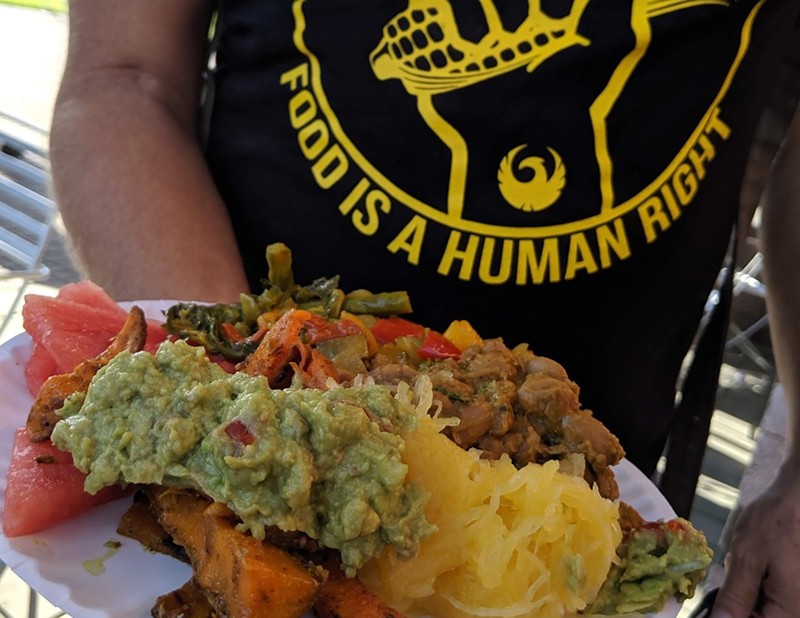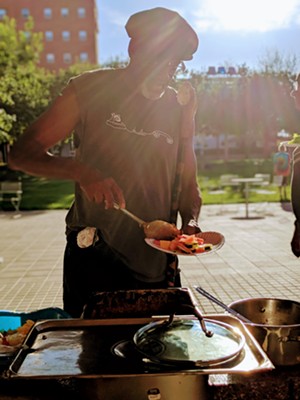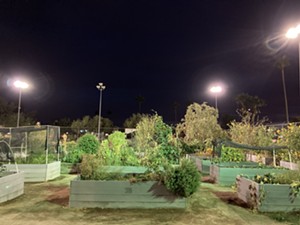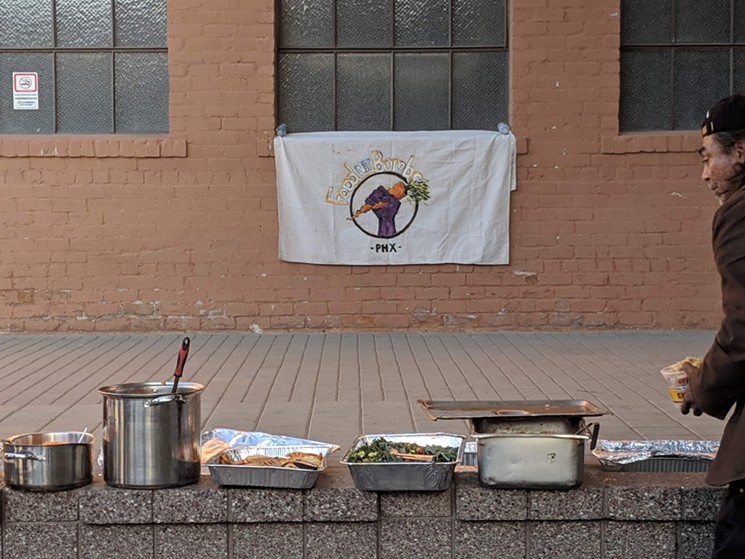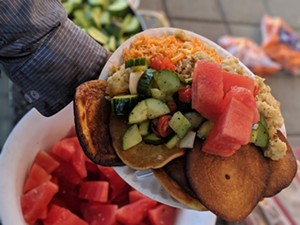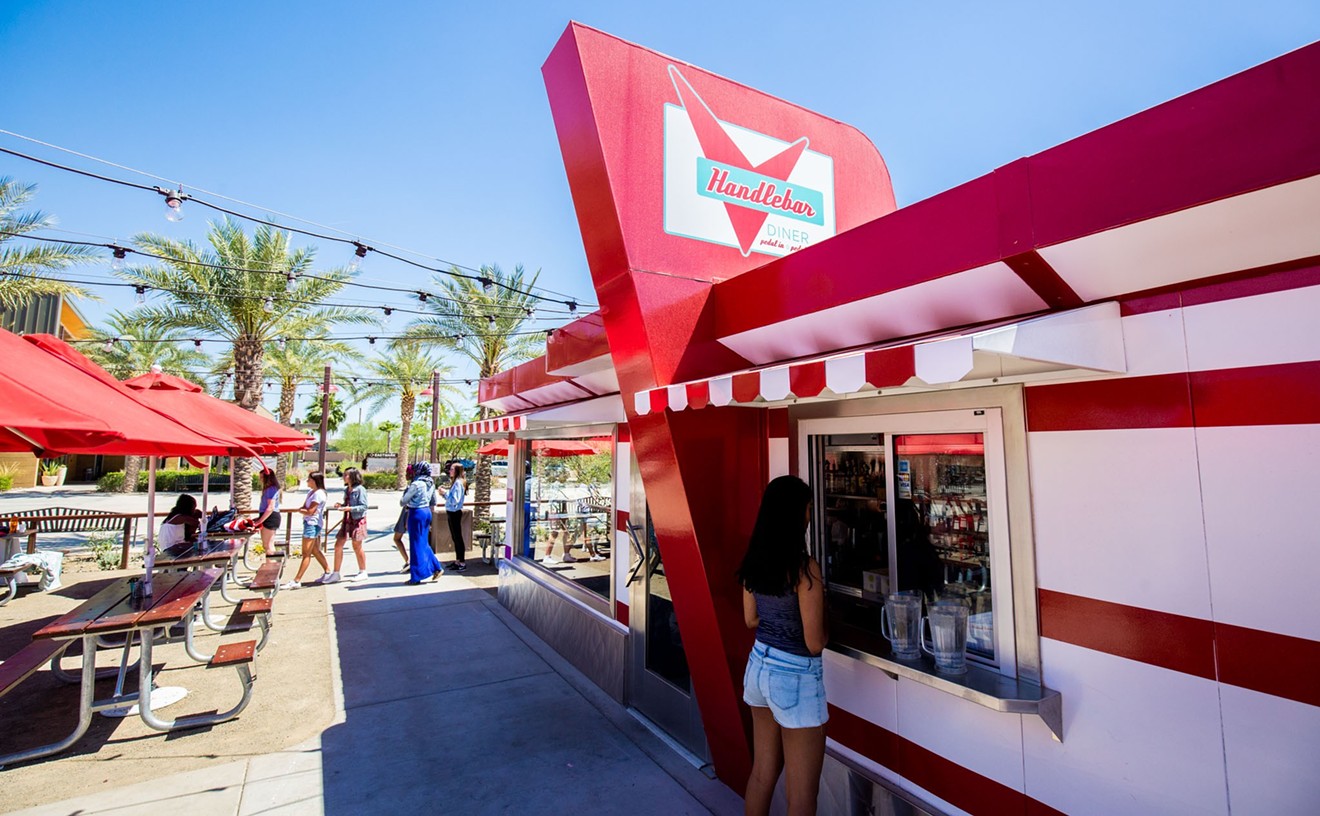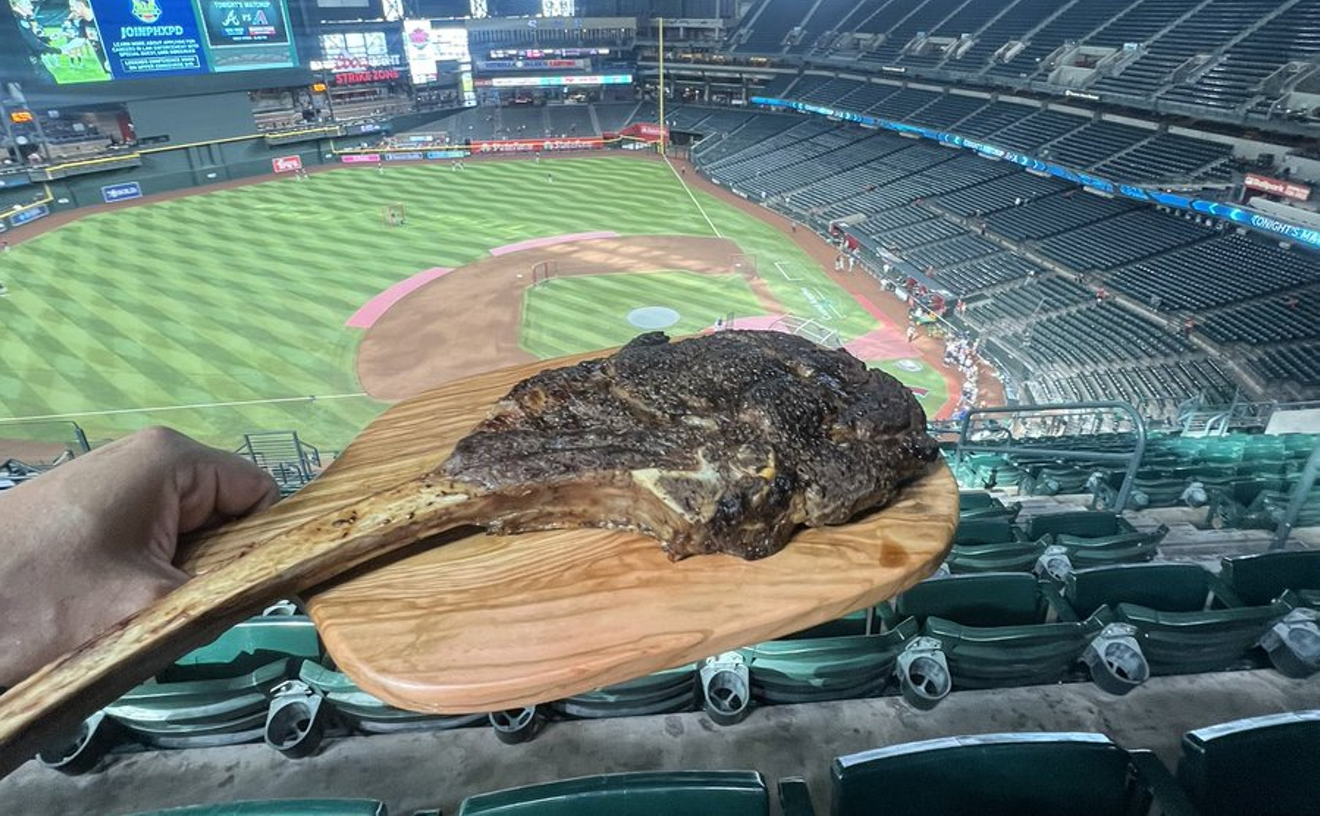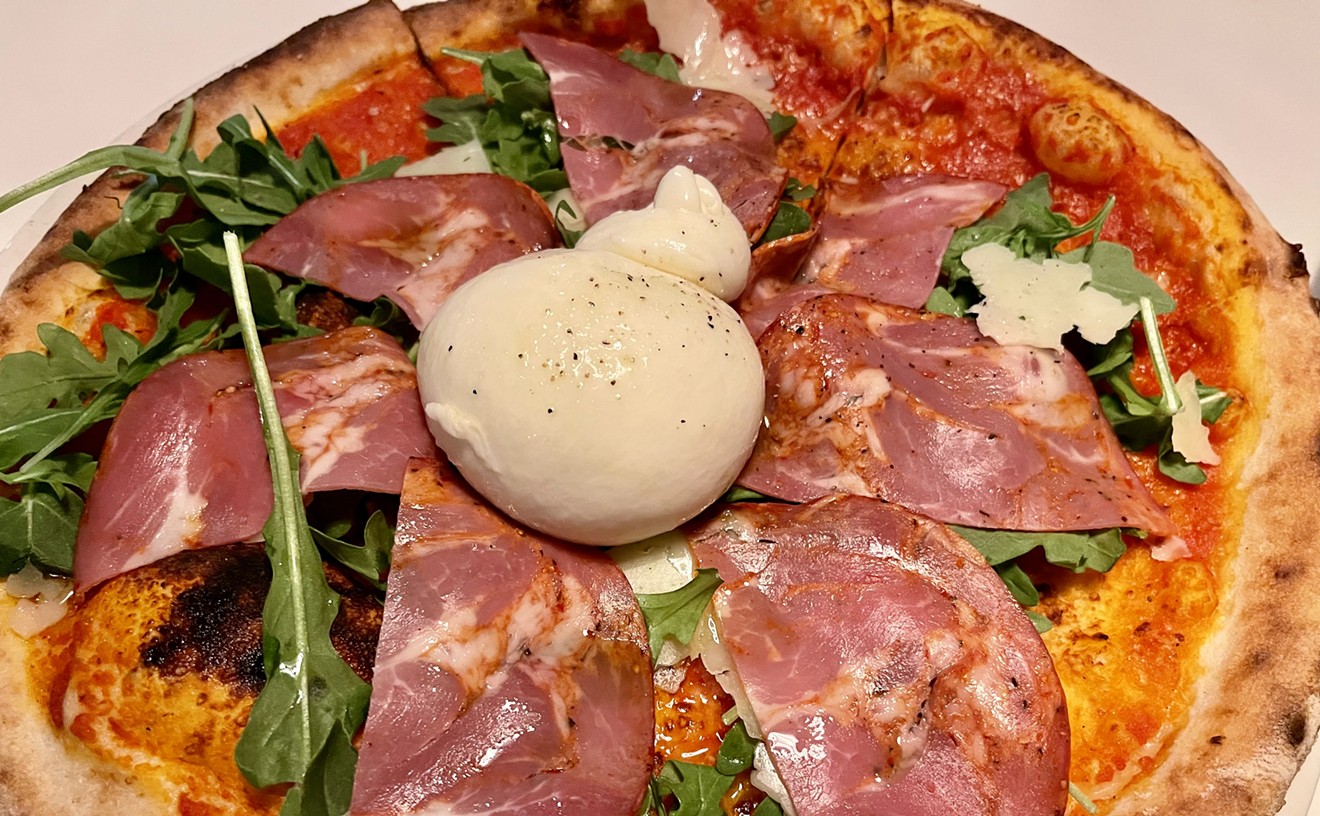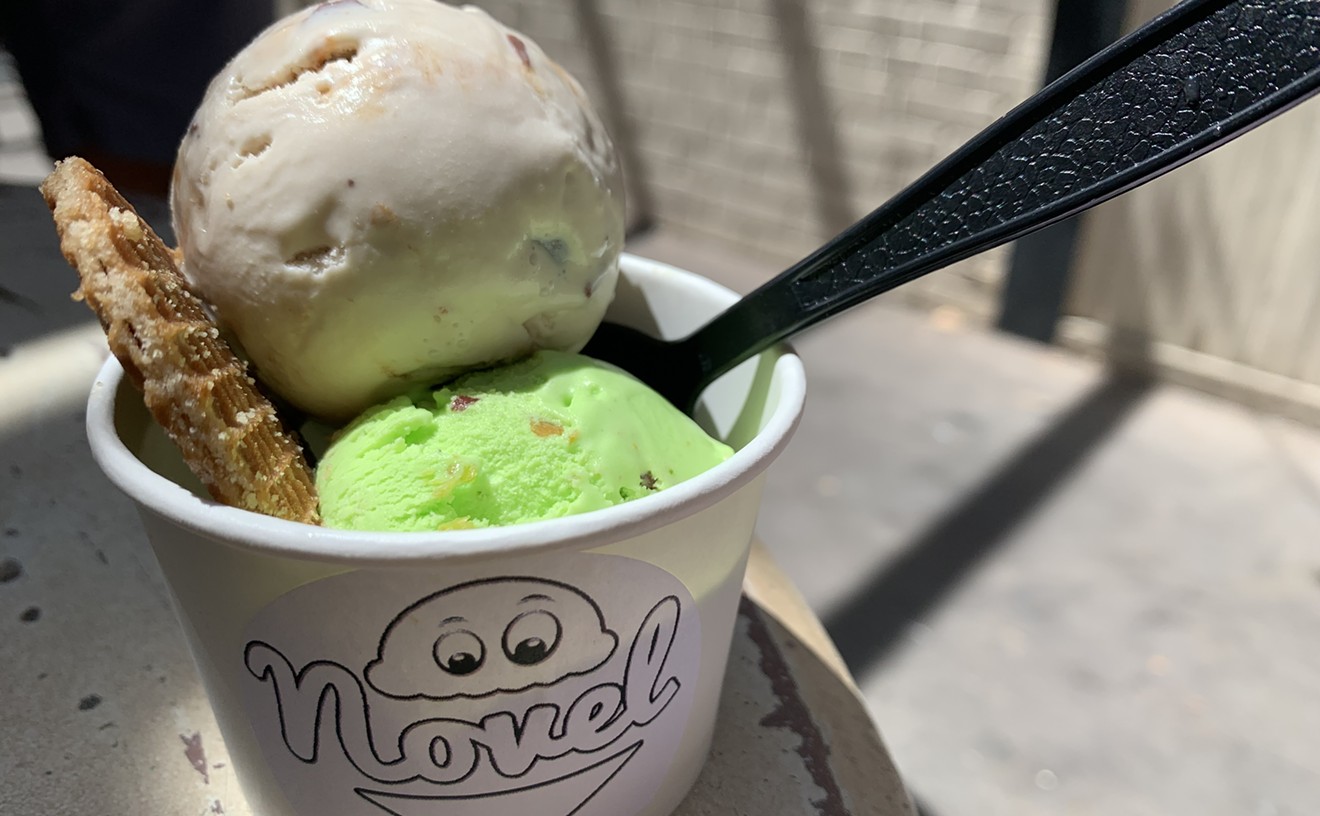Welcome to Table Scraps, a monthly series on the growing problem of food waste and what some eateries, officials, farms, institutes, and everyday people are doing right. This isn’t a guilt trip, just a way to unpack initiatives attempting to reduce kitchen waste and food loss, as more than 40 percent of all food is wasted in the U.S. We’re exploring backyard composting to city programs, restaurant tips to technology, and anything related to this global issue. Heat up those leftovers, and settle in.
Food Not Bombs, founded in 1980 in Cambridge, Massachusetts, is a network of independent collectives, organized by the cities each group of volunteers serves. Each chapter finds, preps, and shares free vegetarian and vegan food with those in need. Or really, anyone. Its meals are made with “food that would otherwise be discarded,” its website states.
The movement began as an antiwar demonstration of sorts. The name may be best explained by the Martin Luther King Jr. quote pinned to the top of the website: "A nation that continues year after year to spend more money on military defense than on programs of social uplift is approaching spiritual death."
In its salad days, Food Not Bombs had a presence in more than 1,000 cities in 65 countries. Today, it’s estimated there are about 400 active chapters.
One interesting part about the Phoenix collective is its unknown origin date.
“It goes so far back that we don’t actually know who started the Phoenix portion of it,” says Amber, who’d rather not give her last name, as she says she’s not doing this for any clout. “The oldest member we have has been here for 11 years, and he has no idea who started it before him.” Amber has found evidence of the group existing at least as far back as the ‘90s.
A typical week involves volunteers gathering surplus food from places like St. Mary's Food Bank and André House of Arizona (a homeless shelter in Phoenix) as well as some vendors from the Downtown Phoenix Farmers Market. Some — mostly Amber at this point — also handle social media communication. On Sunday nights, the collected food is then prepared, packaged, and handed out in downtown Phoenix (more on that later).
André House, as an example, has a set menu for its residents, meaning if the organization gets an odd food donation, like several pounds of eggplant, Food Not Bombs Phoenix is contacted.
“They don’t have room for 1,000 eggplants in their menu,” Amber says. “So that’s where we come in. We’ll take that off their hands, and that would otherwise be going to the dumpster.”
Weston, another member, likes to talk (passionately) about the prep process.
“A lot of the stuff that we get is right at the end of its shelf life, which is great for us because it means that it’s super flavorful and ready to prepare,” he says. “We’re just making sure that food that could be nutritiously consumed by the community is available to them and doesn’t end up going in compost.”
But if the food doesn't get served to the community or donated to another similar group, composting it is. Just as long as it doesn’t go to the landfill.
Some composting happens at a private garden, some at Clark Park in Tempe. This is where the group’s new vegetable garden is growing, though a harvest hasn’t happened yet. This is also where another member, Joe, volunteers on Friday nights.
“Part of the point with Food Not Bombs is that there’s such an abundance already. We already create more food than it would take to feed everybody,” he says, very evenly. “Food should be something that’s universally accessible.”
Joe speaks to why the group serves only vegetarian, sometimes only vegan, meals. He says it’s safer, for one, as many of the volunteers aren’t professionally trained in the kitchen. Two: “A big portion of the group, its members and the people who come in to join us, are vegans for some sort of ideological reason, whether it’s an ethics thing or an environmental thing."
Plus, everybody can eat vegan.
Amber says the group will take a consensus if they get a food donation that is not totally vegan. Bread with an egg wash? They'll pose a question: “Who here, who showed up today, is comfortable with us serving this egg wash bread?” Amber says in a mock trial tone. The comfort level changes week by week, since volunteers, anywhere from two to eight at a time, come and go.
If they do get meat or other animal products, a volunteer might individually distribute the food out in the community, but not under the Food Not Bombs name. “Whether it's vegan or not, we still want to make sure it doesn’t go to waste,” Amber says. Other satellite efforts include cooking and serving at a demonstration to hosting free garage sales open to the community.
That brings us to Sunday, or, “the main show,” as Joe puts it.
Pre-COVID, the group would meet at a place like Phoenix Hostel to prepare food in the kitchen space early Sunday afternoon. Then they would head down to Civic Space Park to start sharing meals by 6 p.m.
“We would cook a dozen different things in trays and take them down to the park and set it up like a buffet,” Joe says, adding that there was also chatting, live music, and Frisbee. “The goal isn’t just to feed people; the goal is to try and give people back their dignity," he says. "Or recognize that their dignity should have never been taken from them in the first place.”
The last Sunday-night event that looked like this was in early March.
“Now we’re in a spot where we can’t really be assembling and doing a potluck,” says Weston.
Sunday nights still have the same timeline, but the group now meets in a member’s home kitchen to prep.
This past Sunday, the group made squash and beans, a curry sauce to go with some rice, and a Thai peanut sauce on the side. Guacamole and cantaloupe, too.
Everything is packed in to-go containers, which are then stacked into wagons, which are then either staged at Civic Space Park or moved through downtown Phoenix on foot.
“We walk around with our wagons distributing food till it’s all gone,” says Amber. “Sometimes it happens really quickly, sometimes we have to make more of an effort.” (She's referring to events that may conflict with the Sunday-night feed, like other gatherings at Civic Space Park, or the park being irrigated.) Then the team has to go find their community. She says they usually get most of their food distributed, feeding around 60 to 80 people.
About six people — Amber, Joe, Weston, Carolina, Chi, and Greg — comprise the core group, even though they aren’t totally thrilled with that term, or any titles of position. “We pride ourselves on being non-hierarchal,” Weston says.
Food Not Bombs Phoenix has an equalizing membership, as Weston puts it, which is ever-changing and diverse. Volunteers “range from being a member of the community that we might be looking to serve, folks that might not necessarily have the most stable housing, to people who are more professional,” Weston says.
Their slogan? Solidarity, not charity.
“We’re not setting ourselves apart from the people that we’re serving,” Amber says. “We don’t see this as charity work, we see this as everyone needs to eat, including us, including you, and we’re here to share.”
To keep up with our friends in the Phoenix chapter, check out their Instagram and Facebook accounts.
[
{
"name": "Air - MediumRectangle - Inline Content - Mobile Display Size",
"component": "18478561",
"insertPoint": "2",
"requiredCountToDisplay": "2",
"watchElement": ".fdn-content-body",
"astAdList": [
{
"adType": "rectangle",
"displayTargets": "mobile"
}
]
},{
"name": "Editor Picks",
"component": "16759093",
"insertPoint": "4",
"requiredCountToDisplay": "1",
"watchElement": ".fdn-content-body",
"astAdList": [
{
"adType": "rectangle",
"displayTargets": "desktop|tablet"
},{
"adType": "rectangle",
"displayTargets": "desktop|tablet|mobile"
}
]
},{
"name": "Inline Links",
"component": "17980324",
"insertPoint": "8th",
"startingPoint": 8,
"requiredCountToDisplay": "7",
"maxInsertions": 25
},{
"name": "Air - MediumRectangle - Combo - Inline Content",
"component": "16759092",
"insertPoint": "8th",
"startingPoint": 8,
"requiredCountToDisplay": "7",
"maxInsertions": 25,
"watchElement": ".fdn-content-body",
"astAdList": [
{
"adType": "rectangle",
"displayTargets": "desktop|tablet"
},{
"adType": "rectangle",
"displayTargets": "desktop|tablet|mobile"
}
]
},{
"name": "Inline Links",
"component": "17980324",
"insertPoint": "8th",
"startingPoint": 12,
"requiredCountToDisplay": "11",
"maxInsertions": 24
},{
"name": "Air - Leaderboard Tower - Combo - Inline Content",
"component": "16759094",
"insertPoint": "8th",
"startingPoint": 12,
"requiredCountToDisplay": "11",
"maxInsertions": 24,
"watchElement": ".fdn-content-body",
"astAdList": [
{
"adType": "leaderboardInlineContent",
"displayTargets": "desktop|tablet"
},{
"adType": "tower",
"displayTargets": "mobile"
}
]
}
]

